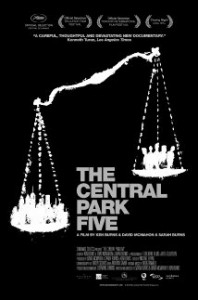 FBI agents interviewed a Boston man to see if he was a threat to society. They decided he wasn't. He was.
FBI agents interviewed a Boston man to see if he was a threat to society. They decided he wasn't. He was.
Prosecutors weighed the exceptionally sparse evidence against five young men in a high profile rape case. They decide they can convince a jury they are guilty. They are not. (Watch the movie).
The social service version of this happens daily. A child protection worker determines that a child is safe and she is not. A juvenile officer decides that a child is ready to leave a treatment facility and live in the community. He hurts someone.
Guilty - Innocent. Safe - Unsafe. Ready - not ready.
Ill will can be brought to bear in any of these cases. An investigation can be concluded on the basis of racial bias instead of the data. Prosecutors, as in the case of the Central Park Five, can decide not to test whether the DNA of a known serial rapist matches the DNA of the semen inside their rape victim, because they fear it will match and they don't want to jeopardize their case against the five young men they have presented to the press as the perpetrators.
But most of the time wrong decisions are made because decisions have to be made in the midst of substantial uncertainty. And these decisions are of real consequence, not just for the parties involved, but for civil liberties.
Many experts are concluding that the best way to make sure good decisions are made in these situations is to have the right workplace culture in place. Much of this writing has concerned the hospital setting, where it means that any nurse can hold up a procedure until she is convinced everything is safe. And that the doctors won't chastise her for wasting time, but praise her for wanting to be sure.
In the prosecutor's office, it means any junior DA can say, "I think we have this wrong." And instead of being called a bleeding heart, he is praised for his concern.
In the FBI office and, I think, in the child protection and juvenile justice settings, it means, saying, "What data do we have?" "What do we not yet know that we need to find out?" It may mean seeking extra opinions or not being willing to accept the first conclusion that comes to mind.
The question the press and the opposition party should be asking about the current FBI case is not, "Who is to blame for getting it wrong?" but what workplace culture was in place to make sure decisions were thorough and reasonable and all available data was considered?
What is the key question in your social service setting to ensure the right culture is in place? What can people do to ensure that your team makes good decisions in the face of substantial uncertainty?
